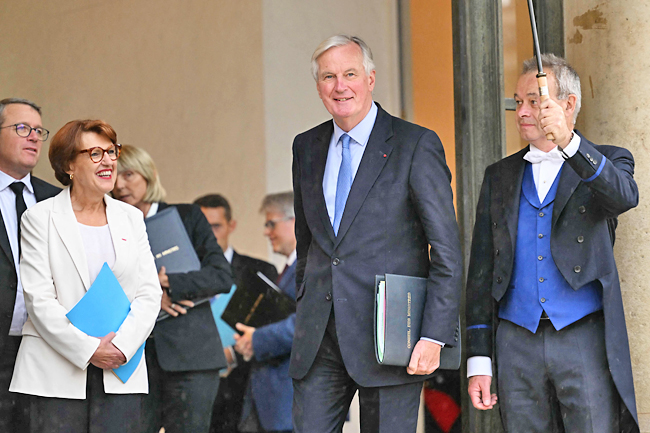PARIS (AFP) – France’s vast public debt pile grew in the second quarter, official figures showed yesterday, as Prime Minister Michel Barnier’s shaky minority government girds itself for a gruelling budget debate.
New borrowings of EUR68.9 billion (USD77 billion) between April and June increased the country’s debt pile to almost EUR3.23 trillion, or 112 per cent of annual output, data from statistics agency INSEE showed.
The figures underline the scale of the challenge for Barnier, the former European Union (EU) commissioner and Brexit negotiator heading a centrist and conservative coalition heavily outnumbered in the National Assembly lower house.
With the chamber roughly divided in three since July’s parliamentary election, the NFP left alliance and far-right National Rally (RN) could oust the new government at any time if they joined forces in a confidence vote.
There is scepticism among financial players of Paris’ ability to get its debt and annual deficit under control.

Ratings agency S&P downgraded France’s creditworthiness earlier this year.
And just this week the yield on France’s debt – the return investors can expect for holding 10-year government bonds – outstripped the measure for Spain for the first time since 2006, pointing to falling confidence among investors.
Barnier is expected to lay out the broad strokes of his policy on Tuesday in a speech to lawmakers that will also be closely watched by markets.
His new budget minister Laurent Saint-Martin said on Wednesday that the draft 2025 budget law would be filed “in the week beginning October 9”.
“Our public finances are in a grave state, and I won’t beat around the bush,” Saint-Martin said, warning that this year’s annual budget deficit would likely top six per cent of GDP – twice the EU limit.
He blamed lower-than-expected tax receipts and companies holding off on hiring and investment for much of the worsened picture, as well as saying local and regional administrations had spent more than planned.
“We will have to make a significant collective effort” to get the public finances under control, Saint-Martin warned.
Barnier and his team said they aim for more spending cuts than tax increases to right the ship, prompting accusations of “austerity” from the left.
But the prime minister said last Sunday that higher levies on big firms and very wealthy individuals could be part of the equation.



















































